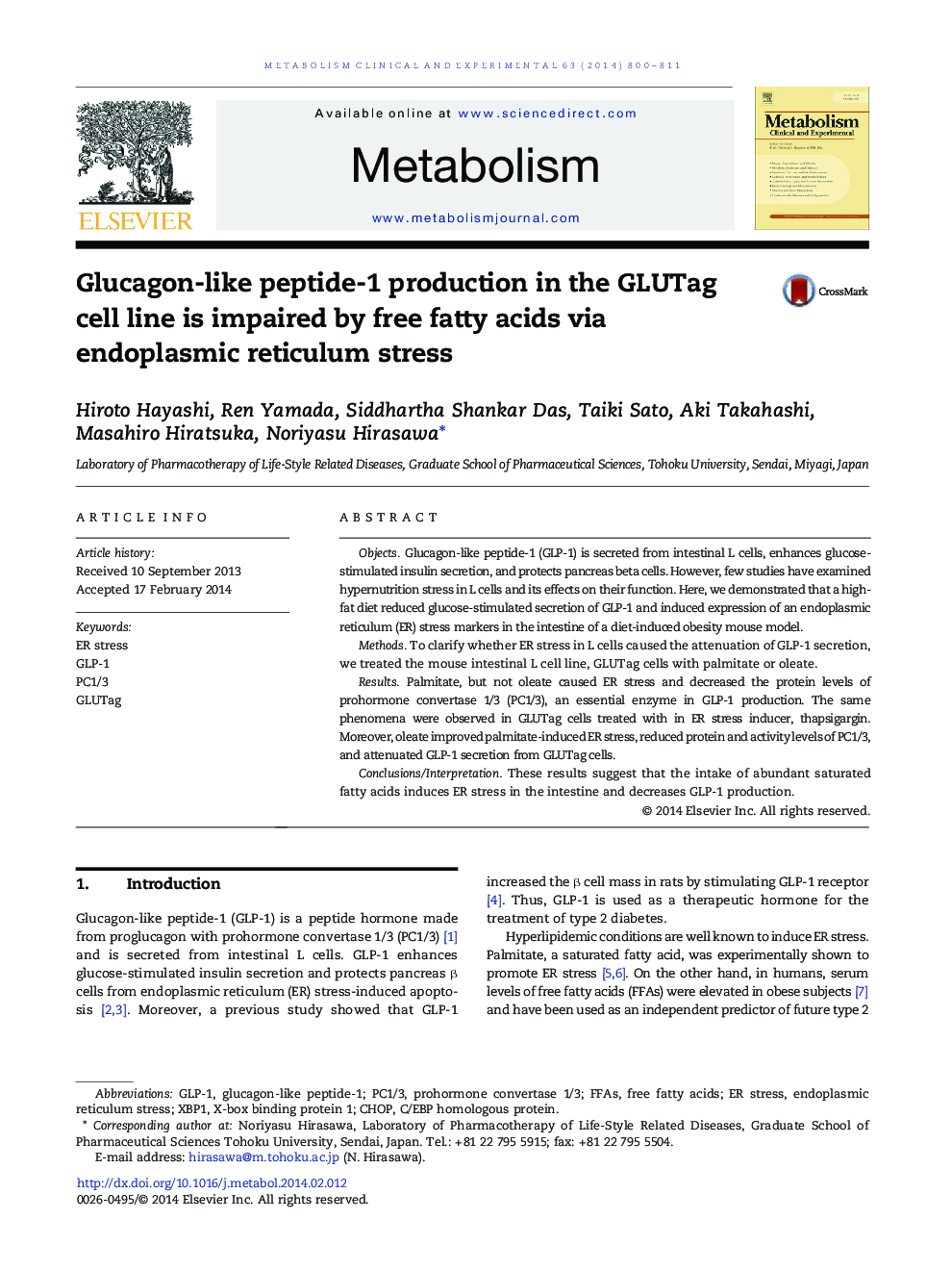| Article ID | Journal | Published Year | Pages | File Type |
|---|---|---|---|---|
| 2805563 | Metabolism | 2014 | 12 Pages |
ObjectsGlucagon-like peptide-1 (GLP-1) is secreted from intestinal L cells, enhances glucose-stimulated insulin secretion, and protects pancreas beta cells. However, few studies have examined hypernutrition stress in L cells and its effects on their function. Here, we demonstrated that a high-fat diet reduced glucose-stimulated secretion of GLP-1 and induced expression of an endoplasmic reticulum (ER) stress markers in the intestine of a diet-induced obesity mouse model.MethodsTo clarify whether ER stress in L cells caused the attenuation of GLP-1 secretion, we treated the mouse intestinal L cell line, GLUTag cells with palmitate or oleate.ResultsPalmitate, but not oleate caused ER stress and decreased the protein levels of prohormone convertase 1/3 (PC1/3), an essential enzyme in GLP-1 production. The same phenomena were observed in GLUTag cells treated with in ER stress inducer, thapsigargin. Moreover, oleate improved palmitate-induced ER stress, reduced protein and activity levels of PC1/3, and attenuated GLP-1 secretion from GLUTag cells.Conclusions/InterpretationThese results suggest that the intake of abundant saturated fatty acids induces ER stress in the intestine and decreases GLP-1 production.
